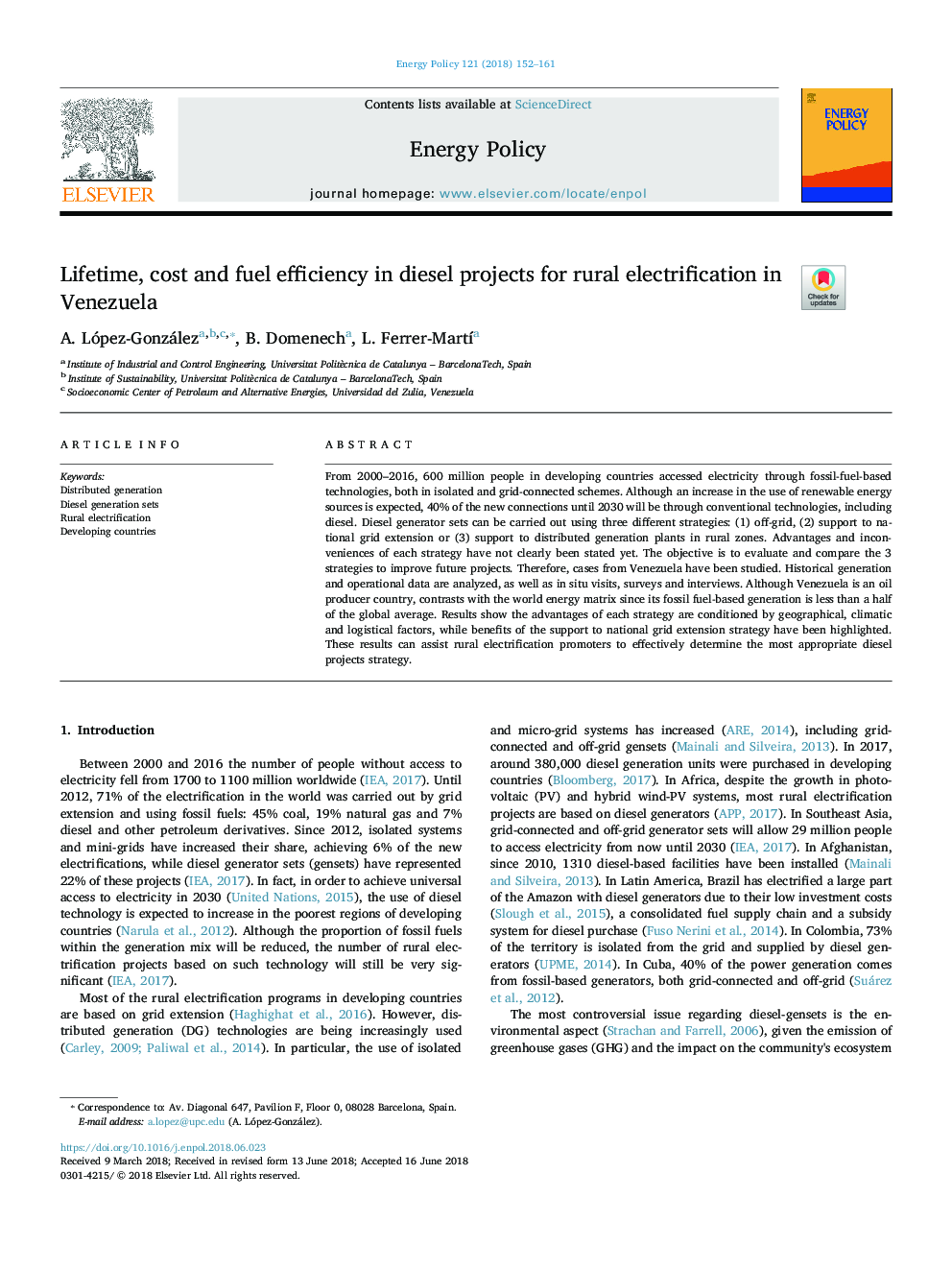| Article ID | Journal | Published Year | Pages | File Type |
|---|---|---|---|---|
| 7396697 | Energy Policy | 2018 | 10 Pages |
Abstract
From 2000-2016, 600 million people in developing countries accessed electricity through fossil-fuel-based technologies, both in isolated and grid-connected schemes. Although an increase in the use of renewable energy sources is expected, 40% of the new connections until 2030 will be through conventional technologies, including diesel. Diesel generator sets can be carried out using three different strategies: (1) off-grid, (2) support to national grid extension or (3) support to distributed generation plants in rural zones. Advantages and inconveniences of each strategy have not clearly been stated yet. The objective is to evaluate and compare the 3 strategies to improve future projects. Therefore, cases from Venezuela have been studied. Historical generation and operational data are analyzed, as well as in situ visits, surveys and interviews. Although Venezuela is an oil producer country, contrasts with the world energy matrix since its fossil fuel-based generation is less than a half of the global average. Results show the advantages of each strategy are conditioned by geographical, climatic and logistical factors, while benefits of the support to national grid extension strategy have been highlighted. These results can assist rural electrification promoters to effectively determine the most appropriate diesel projects strategy.
Related Topics
Physical Sciences and Engineering
Energy
Energy Engineering and Power Technology
Authors
A. López-González, B. Domenech, L. Ferrer-MartÃ,
